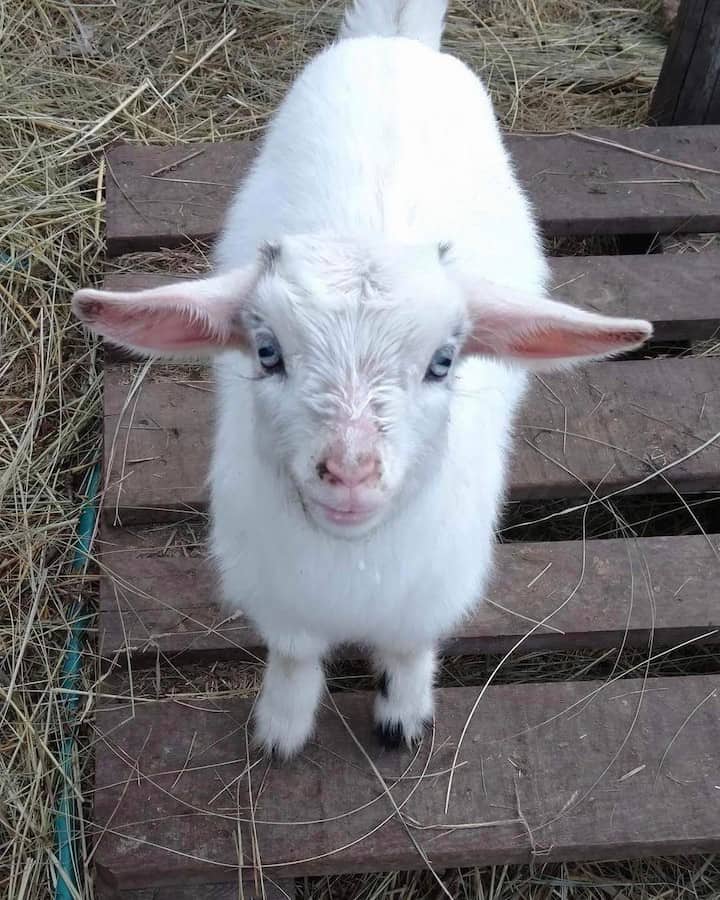
Baby Pygmy Goat Care: A Comprehensive Guide
Introduction
Pygmy goats, known for their adorable appearance and friendly nature, have become increasingly popular as companion animals. Their miniature size and gentle demeanor make them suitable for both urban and rural environments. However, caring for baby pygmy goats requires specific knowledge and attention to ensure their health and well-being. This comprehensive guide will provide detailed instructions on every aspect of baby pygmy goat care, from feeding and housing to health management and socialization.
Feeding
Colostrum:
Immediately after birth, baby pygmy goats must receive colostrum, the first milk produced by their mother. Colostrum is rich in antibodies and nutrients that are essential for the kid’s immune system development. If the mother is unable to provide colostrum, a commercial colostrum replacer can be used.
Milk:
Baby pygmy goats should be fed milk for the first 8-12 weeks of life. They can be bottle-fed or allowed to nurse directly from their mother. If bottle-feeding, use a goat’s milk replacer specifically formulated for pygmy goats.
Feeding Schedule:
- Weeks 1-4: Feed every 2-3 hours, around the clock.
- Weeks 5-8: Feed every 4-6 hours.
- Weeks 9-12: Gradually reduce feedings to twice a day.
Weaning:
Weaning should begin at around 8 weeks of age. Gradually reduce the amount of milk provided while introducing solid feed. By 12 weeks, the kid should be fully weaned.
Solid Feed:
Once weaned, baby pygmy goats should be provided with a diet consisting of:
- Hay: High-quality hay, such as alfalfa or timothy, should be available at all times.
- Grains: Commercial goat feed or a mix of oats, corn, and barley can be provided in limited amounts.
- Fresh Vegetables: Offer a variety of fresh vegetables, such as carrots, apples, and leafy greens.
- Water: Fresh, clean water should be available at all times.
Housing
Shelter:
Baby pygmy goats require a clean, dry, and draft-free shelter. The shelter should be large enough to accommodate the kids and their mother. Provide plenty of bedding, such as straw or hay, for warmth and comfort.
Temperature:
Baby pygmy goats are sensitive to cold temperatures. Maintain a temperature of at least 55°F (13°C) in the shelter. If necessary, use a heat lamp or provide additional bedding for warmth.
Ventilation:
Adequate ventilation is essential to prevent respiratory problems. Ensure that the shelter has windows or vents to allow for fresh air circulation.
Outdoor Space:
Once the kids are a few weeks old, they can be introduced to an outdoor space. Provide a fenced-in area with access to shade, shelter, and fresh water.
Health Management
Vaccinations:
Baby pygmy goats should be vaccinated against common diseases, such as Clostridium perfringens type C and D, tetanus, and rabies. Consult with a veterinarian to determine the appropriate vaccination schedule.
Deworming:
Regular deworming is essential to prevent internal parasites. Deworm the kids every 3-4 weeks until they are 6 months old.
Hoof Trimming:
Hoof trimming should be performed every 6-8 weeks to prevent overgrown hooves. Use sharp hoof trimmers and follow proper trimming techniques.
Socialization
Handling:
Handle baby pygmy goats gently and frequently to socialize them. This will help them become comfortable with human interaction and make them easier to care for.
Playtime:
Provide plenty of opportunities for playtime and interaction with other goats. This will help them develop social skills and prevent boredom.
Companionship:
Baby pygmy goats are social animals and should not be kept alone. If possible, provide them with a companion of the same age and species.
Special Considerations
Premature Kids:
Premature kids require special care. They may need to be bottle-fed more frequently and kept in a warm, draft-free environment. Consult with a veterinarian for specific instructions.
Bottle-Feeding:
If bottle-feeding is necessary, use a specially designed goat’s milk bottle and nipple. Warm the milk to body temperature before feeding. Hold the kid upright and support its head while feeding.
Orphaned Kids:
Orphaned kids require immediate attention. Contact a veterinarian or animal rescue organization for assistance. They may need to be bottle-fed and provided with additional care.
Conclusion
Caring for baby pygmy goats is a rewarding experience that requires patience, attention, and a commitment to their well-being. By following the guidelines outlined in this comprehensive guide, you can ensure that your baby pygmy goats thrive and become healthy, happy companions for years to come. Remember to consult with a veterinarian regularly for professional advice and to address any specific health concerns.
